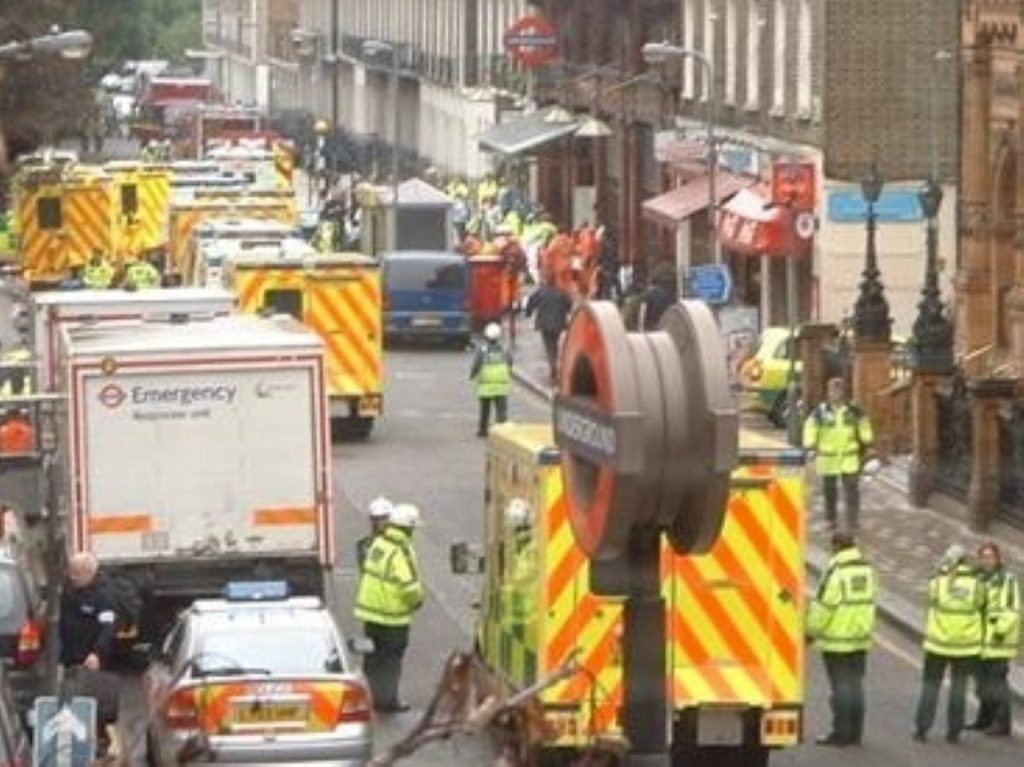Feature: Government’s big plans for national security
Cameras clicked in No 10 as David Cameron chaired the first meeting of the National Security Council. One of the Conservatives’ earliest objectives in government could be ticked off.
By Aled Thomas
“We always planned to hold a highly visible meeting on day one” said a Conservative party source involved in the planning of the new strategy, “visible to make it clear that this is the new way of doing things”.
The NSC is a Cabinet-level committee, chaired by the prime minister with Nick Clegg also attending.


William Hague, the foreign secretary, Theresa May, home secretary, and defence secretary Liam Fox will also have permanent seats, as will international development secretary Andrew Mitchell and Baroness Neville-Jones, the security minister.
The fact that such heavyweights will attend the meetings is a sign that national security is to be a central factor in the new government’s thinking on a wide range of policies.
The broader issue, said the Conservative insider, is no longer to be restricted to either defence or homeland security.
Talking exclusively to politics.co.uk the party advisor said: “It’s hard to meaningfully think about domestic and overseas policy as different when it comes to national security.
“This is not just about homeland defence, checks at airports and borders. Broader national security involves foreign and defence policy and counter terrorism, but also work in communities, ethnic integration, counter-radicalisation. Conflict prevention is also a central part of ensuring national security.
“International development is also important,” the party insider added, “it’s much better to prevent a failed state than to fight through the ruins of one.”
The new structures, which include the appointment of former Foreign and Commonwealth Office mandarin Sir Peter Ricketts as a US-style national security advisor, are to secure for the government a closer hold on strategy across a broad front
The party advisor said: “The NSC is the largest of a number of reforms to the central machinery of the security apparatus, it’s mainly a change in Cabinet Office.
“We are not talking about merging SIS with MI5 or anything like that, and the joint intelligence committee will still be in charge of intelligence. This is about strategy and coordination.”
There was some criticism of the way security structures had grown up under the Labour government. “We have had the luxury of sitting and watching to an extent, Gordon Brown did change some things and John Reid as defence secretary held ministerial meetings before troops went into Helmand which helped.
“But a lot of it had grown up as a response to world-shaking events, 9/11, war in Afghanistan, 7/7, and the Conservative concern was that there were too many of them doing similar things. This approach should be simpler and slicker.”
It was made clear that the NSC, a strategic body, will not conflict with Cobra, the government’s high level committee which meets in response to crises and events.
The pre-election planning also extends thinking to national resilience. There will be reforms to the planning and coordinating structures which deal with other threats, with a Civil Contingencies Secretariat set up in Cabinet Office.
The Conservative advisor said: “This is about being prepared for emergencies, about threats to the critical national infrastructure.”
Examples given were risks to the country’s power supply, attacks on national IT infrastructure or the banking system and natural disasters: “Katrina was a big lesson. And the floods in Gloucestershire in 2007, we were two inches from having to evacuate the county and find shelter for 300,000 people.
“This is not, I emphasise, about checkpoints anywhere, it’s being prepared for emergencies; think of things like swine flu. It’s clear that if something does happen, it will be upon us before we know it.”
The new initiative met with the broad approval of security experts at Chatham House, the international affairs specialist.
International security programme coordinator Claire Yorke said: “We have been doing quite a lot of work on widening the scope of national security. If you look at the UK risk register it includes a range of threats from flu epidemics to cyber attacks and natural disasters, as well as the more conventional threats.
“By adopting a broader approach to national security, beyond the MoD or the Home Office, you may find that other departments are better equipped to respond.
“This new initiative appears to be in this vein, taking a more comprehensive approach to security, involving different departments and enhancing cooperation so that security is not perceived in too narrow terms.
“Though I wouldn’t under-estimate the structures already in place in Whitehall, there are already levels of coordination, to formalise it and also bring it into the public arena is, I think, a welcome move. It will be interesting to see what comes of it all.”

